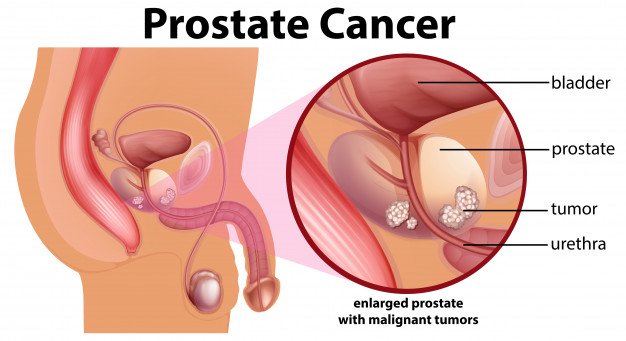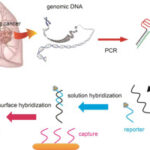Metastatic prostate carcinoma is an advanced stage of prostate cancer, in which malignant cells spread beyond the prostate gland to distant organs, most commonly bones, lymph nodes, liver, and lungs. Understanding its progression, treatment options, and prognosis is crucial for effective management and improved patient outcomes.

Understanding Prostate Cancer Metastasis
Prostate cancer originates in the glandular cells of the prostate and can remain localized for years before developing into metastatic prostate carcinoma. The transition from localized to metastatic disease occurs when cancer cells gain the ability to invade nearby tissues and spread through the bloodstream or lymphatic system.
Pathways of Metastasis
The metastatic spread of prostate cancer follows specific pathways:
- Lymphatic Spread: Cancer cells migrate to regional lymph nodes before disseminating further.
- Hematogenous Spread: Cancerous cells enter the bloodstream, often leading to bone metastases (most commonly in the spine, ribs, pelvis, and femur).
Risk Factors and Causes
Several factors contribute to the development and progression of metastatic prostate carcinoma:
- Age: Men over 65 are at significantly higher risk.
- Genetics: BRCA1, BRCA2, and HOXB13 gene mutations increase susceptibility.
- Hormonal Factors: Elevated testosterone levels can promote cancer growth.
- High PSA Levels: Prostate-Specific Antigen (PSA) levels above 20 ng/mL indicate higher metastatic potential.
- Ethnicity: African American men have a higher incidence and mortality rate.
Symptoms of Metastatic Prostate Carcinoma
Symptoms vary depending on the site of metastasis and disease progression:
- Bone Metastases: Severe bone pain, fractures, spinal cord compression.
- Lymphatic Spread: Swollen lymph nodes, leg swelling.
- Visceral Metastases: Liver dysfunction (jaundice), lung involvement (cough, breathlessness).
- General Symptoms: Fatigue, weight loss, and anemia.
Diagnosis and Staging
A multi-modal approach is used to diagnose and stage metastatic prostate cancer:
- PSA Blood Test: Elevated PSA levels indicate disease progression.
- Imaging Tests: MRI, CT scans, and bone scans help identify metastatic lesions.
- Biopsy: Confirms cancer type and grade.
- Genomic Testing: Identifies actionable mutations for targeted therapy.
TNM Staging System
The TNM (Tumor, Nodes, Metastases) staging system is used to classify prostate cancer:
- T4: Tumor extends beyond the prostate.
- N1: Cancer has spread to lymph nodes.
- M1: Distant metastases present.
Treatment Options for Metastatic Prostate Cancer
1. Androgen Deprivation Therapy (ADT)
- LHRH Agonists (Leuprolide, Goserelin): Lower testosterone levels to slow cancer growth.
- Anti-Androgens (Bicalutamide, Enzalutamide): Block testosterone from binding to cancer cells.
- Orchiectomy (Surgical Castration): Irreversibly reduces testosterone levels.
2. Chemotherapy
- Docetaxel and Cabazitaxel: First-line chemotherapy agents for castration-resistant prostate cancer (CRPC).
- Combination Therapy: Chemotherapy + ADT improves survival rates.
3. Targeted Therapy
- PARP Inhibitors (Olaparib, Rucaparib): Effective for BRCA-mutated prostate cancer.
- Radium-223: Used for bone metastases to reduce skeletal-related complications.
4. Immunotherapy
- Sipuleucel-T (Provenge): A personalized vaccine that stimulates the immune system.
- Checkpoint Inhibitors (Pembrolizumab): For cases with microsatellite instability (MSI-high) or mismatch repair deficiency (dMMR).
5. Radiotherapy
- External Beam Radiation Therapy (EBRT): Targets metastatic bone lesions.
- Prostate-Directed Radiation: Recommended for low metastatic burden cases.
6. Bone-Targeted Therapy
- Bisphosphonates (Zoledronic Acid): Prevent bone loss and fractures.
- Denosumab: Reduces bone complications in metastatic patients.
Prognosis and Survival Rates
- Median survival for metastatic prostate cancer varies based on response to treatment:
- Hormone-sensitive stage: 4-5 years with optimal therapy.
- Castration-resistant stage (CRPC): 2-3 years.
- Five-year survival rate for metastatic cases is approximately 30%, but newer treatments continue to improve long-term outcomes.
Emerging Research and Future Directions
- Next-Generation Hormonal Agents: Development of more potent anti-androgens.
- Combination Immunotherapy: Investigating synergistic effects with checkpoint inhibitors.
- Liquid Biopsy Advances: Real-time monitoring of tumor evolution for personalized therapy.
- AI-Based Drug Discovery: Identifying novel molecular targets for treatment.
Metastatic prostate carcinoma is a complex disease requiring a multidisciplinary approach for effective management. Advances in targeted therapies, immunotherapy, and genomic profiling continue to improve patient outcomes. Early detection, aggressive treatment, and personalized care remain key to prolonging survival and enhancing quality of life.

